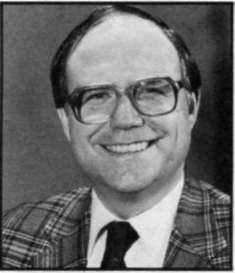 |
Home | Search | Browse | About IPO | Staff | Links |
 |
Home | Search | Browse | About IPO | Staff | Links |
|
Politics Shaking lobbyists' money-tree 
By CHARLES N. WHEELER III Like mushrooms after a spring shower, invitations to legislative testimonials are sprouting in the mailboxes of lobbyists from Chicago to Cairo. And just as your average garden-variety fungus peeking out from the lawn marks the presence of underground decay, those legislative solicitations are a sign of something amiss in the public weal. "What I don't like about them," one veteran lobbyist explained, "is that on a Wednesday morning you can be at a guy's breakfast fundraiser and then Wednesday afternoon you may be before his committee with a bill. . . . It just looks bad." Once the province of only the four legislative leaders, the fundraisers held in Springfield during the last few months of the spring session increasingly have become a standard financial tool for even freshman lawmakers eager to shake the lobbyists' money-tree. And it illustrates a disconcerting political fact of life: Simply put, the financial aspects of campaigning for the Illinois General Assembly are getting out of hand. Consider the developments of the past 14 years, since the state's campaign disclosure law was enacted:
None of this is news, of course, to lawmakers, lobbyists, or to the press corps that follows the exploits of both. Indeed, many of these changes have been documented in the pages of this journal. But the rapid evolution of the art of campaign financing raises important questions. The most obvious is what impact the huge sums of special interest money poured into campaign coffers have on the legislature's work product. That there is some relationship seems self-evident; the people who control the PACs aren't the sort to throw away money for no good reason. But the popular notion that a campaign contribution is used to buy a legislator's vote on a particular issue is way off-base. Instead, the vast bulk of contributions are made in hopes of electing and retaining legislators who already are sympathetic to the donor organization and its legislative agenda. That's only common sense; you don't have to worry about whether a vote will stay bought when the person who'll cast it believes in your cause. And it's also democracy at work, if you will, as people with similar interests unite their efforts to elect representatives who'll address their concerns. Besides rewarding friends, occasionally a PAC will also punish its enemies. One way is to help an opponent amass the financial May 1988 | Illinois Issues | 8 firepower for a campaign credible enough so that the object of the group's displeasure can't simply coast home. But generally the smart PACs concentrate their dollars where they can do the most good, looking for viable candidates and resisting the temptation to help windmill tilters just because the ideology is right. Contributions also provide access to legislators, helping to insure an open door for an interest group looking for help on an issue. More troubling, however, is the possibility that the ready availability of ever-larger sums of PAC money and the ever-increasing costs of legislative campaigns are bound up in a vicious cycle. Here in particular the role of the partisan legislative committee comes into play. The PACs controlled by party legislative leaders have campaign war chests that dwarf the resources available to the average legislator; that enables partisan strategists to bring costly, state-of-the-art techniques into play in key races, thus driving up the costs of campaigning. Such high-tech innovations of recent years as targeted direct mail, tracking polls and slick television spots also have had an undesirable side effect: They've made negative campaigning a lot easier and thus increased the urge for those who oversee the PAC efforts from Springfield to do a little mudslinging in target districts. Past efforts to rein in campaign giving have met with little success. Last spring, for example, two bills to put caps on what individuals, PACs and other organizations could contribute to a candidate were introduced in the House, but neither received even a committee vote on their merits. The legislature's reluctance to confront the issue, however, doesn't mean that public concern about how much campaigns cost and how they are financed will go away. Granted, the contribution-versus-spending debate may be a question of which came first, the chicken or the egg. But without the cash at hand, megabuck campaigning of necessity would have to be scaled back. And a good place to start, if only for appearances' sake, would be the elimination of the Springfield fundraisers timed to coincide with the busiest months of the legislative season. □ Charles N. Wheeler III is a correspondent in the Springfield Bureau of the Chicago Sun-Times. May 1988 | Illinois Issues | 9 |
|
|